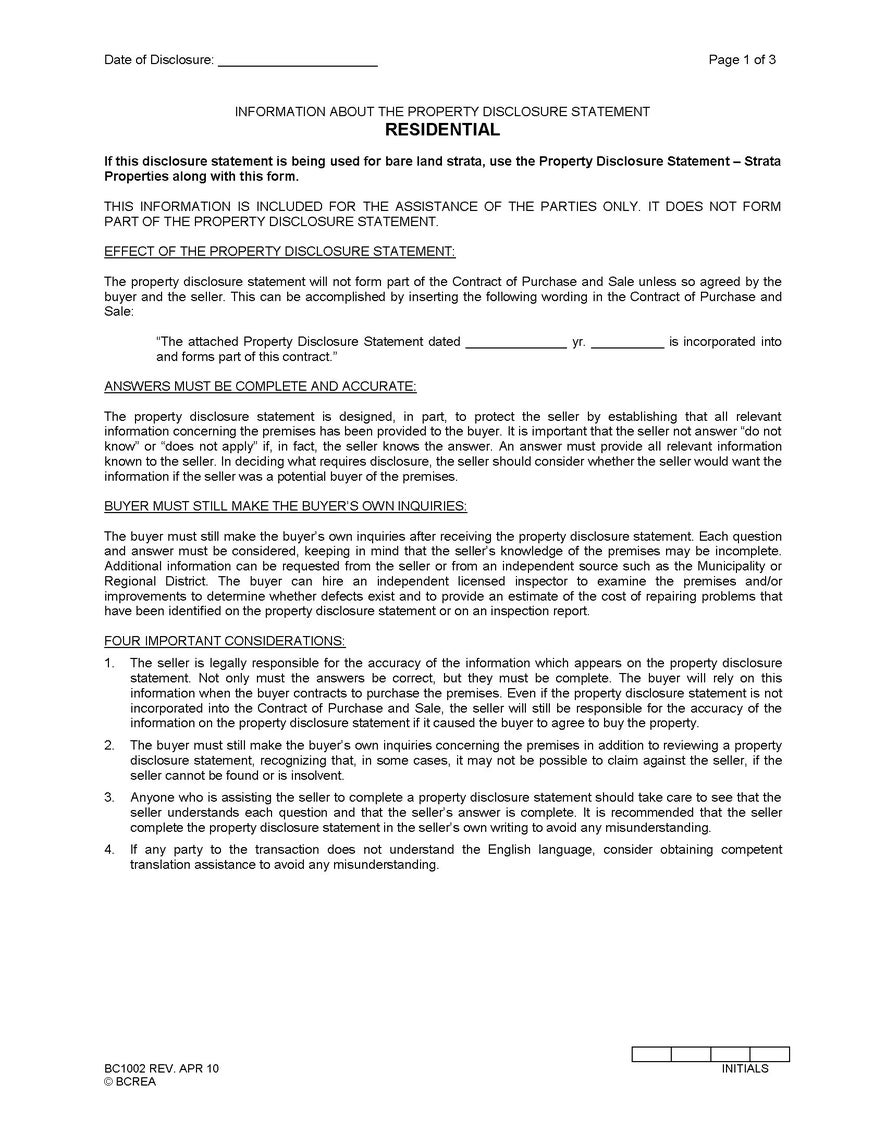Sellers: Before you sign the listing contract. Ensure that: it has been completed to your satisfaction, and you have a thorough understanding of all of the terms it contains, especially the list price, the commission rate, and the length of the contract.
The real estate professional will provide you with a copy of this contract which you should keep for future reference.
Remember: the Listing Contract is a contract. You cannot simply back out of the contract without the consent of your real estate professional. If your real estate professional says that you can cancel the listing agreement at any time, ensure that you get this in writing.

Sellers must disclose known material latent defects about their property to a buyer. A material latent defect means a defect that cannot be discerned through a reasonable inspection of the property, including a defect that renders the real estate:

The real estate professional will provide you with a copy of this contract which you should keep for future reference.
Remember: the Listing Contract is a contract. You cannot simply back out of the contract without the consent of your real estate professional. If your real estate professional says that you can cancel the listing agreement at any time, ensure that you get this in writing.
Your responsibilities as a seller
When you employ a real estate professional, you are responsible for providing him or her with accurate information concerning your home, such as:- its age,
- the current financing arrangements,
- the condition of the roof and hot water heater,
- the property taxes.
- minutes of all strata meetings in the last two years,
- current financial statements,
- registered bylaws,
- current rules,
- building inspection or engineer’s reports,
- Information Certificate (Form B prescribed under the Strata Property Act),
- how parking stalls and storage lockers are designated
- whether a special assessment is being proposed, and
- any other documentation relevant to the strata property.
Obligation to disclose defects

- dangerous or potentially dangerous to the occupants;
- unfit for habitation; or
- unfit for the purpose for which the buyer is acquiring it, if the buyer has made this purpose known to the seller.
- a defect that would involve great expense to remedy;
- a circumstance that affects the real estate in respect of
- which a local government or other local authority has given a notice to the seller, indicating that the circumstance must or should be remedied; or
- a lack of appropriate municipal building and other permits respecting the real estate.
- the fact that the basement leaks when it rains,
- structural damage to the property,
- failure of the building’s envelope (water ingress),
- underground storage tanks located on the property,
- problems with the potability/quantity of drinking water
- un-remediated damage caused by the illegal use of the property, e.g. marijuana grow operation.